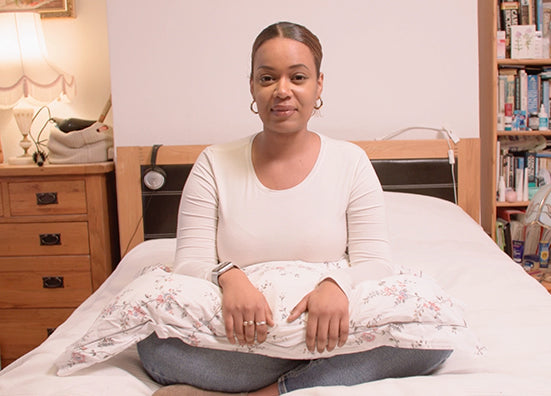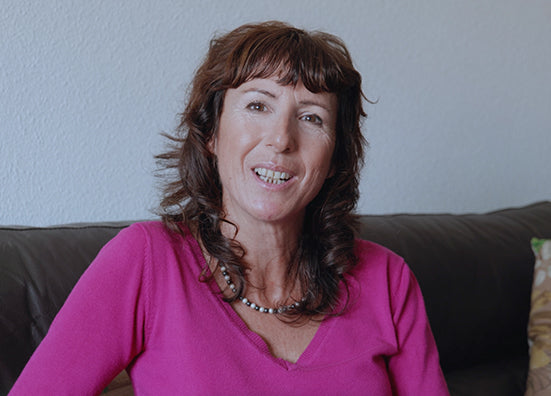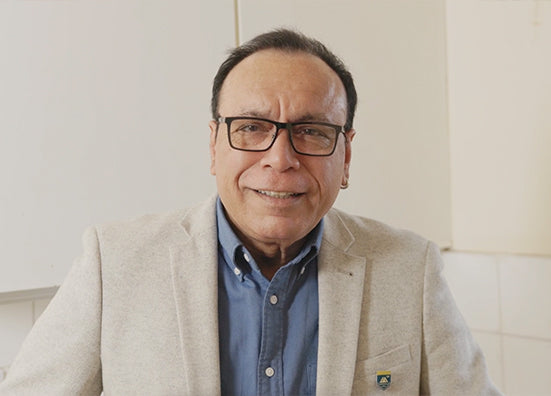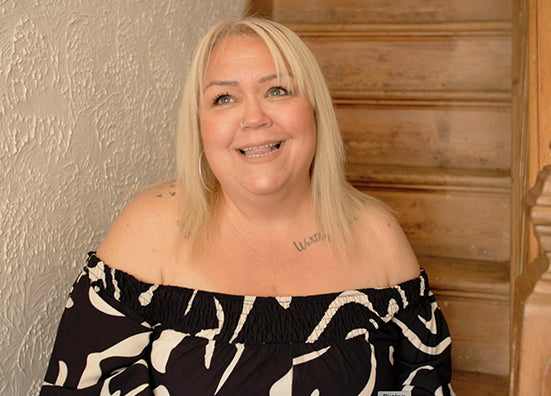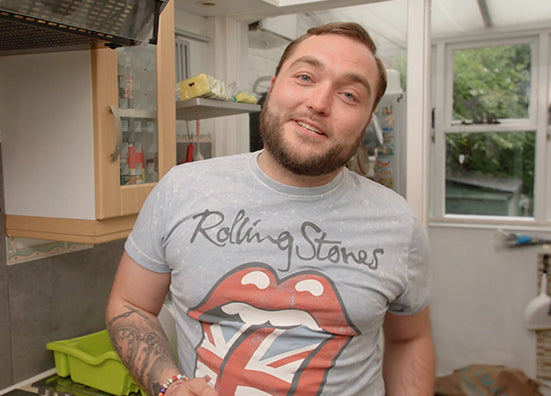When my friend Lia married the person she had been dating for only a year, I congratulated her, but I also felt uneasy. I had spent some time with them together and I had noticed that my friend's behaviour changed slightly when she was with her girlfriend. She seemed less relaxed, more eager to please. Nothing dramatic, but definitely...something. Her partner, Christine, had a history of substance abuse, and although she had been clean for a while, she seemed have replaced drugs with other addictions. The weekend they stayed with me Christine finished every bottle of alcohol I had in the house. She would buy things impulsively and she would seek out experiences that gave her a dopamine rush of exhilaration. My friend could see all of this, but she didn't want to really take it in. She was in love, riding her own dopamine high, and felt like she could handle all of it.
She was wrong. A year or so later Lia came home one day to find Christine sitting outside their apartment with all of their things. She had spent the rent from the previous 6 months on drugs without Lia having any idea of what was happening and they were now broke and homeless.
Click here for our Healing from a Toxic Relationship Hypnotherapy Session
You might think this was enough to make my friend run for the hills, but that's not how toxic relationships work. She stuck it out for another 6 years, during which time we lost contact (most of her friendships faltered and fell away because she didn't want to know what her friends saw and thought) and by the time she reached out to me again it was because Christine had left her for someone else. She came to stay with me for a week as she tried to get to grips with what had happened, and it gave us time to see the whole thing with much greater clarity.
What was most amazing to me was that, despite the years of being treated absolutely terribly by Christine, Lia was still devastated by her leaving. She was still 'in love' with her, still desperate for her attention, still willing to try again, to jump back into the relationship at the first opportunity. The stories she told me of the way she'd been treated made my toes curl, but here was my brilliant, kind, funny, compassionate friend saying she'd go back into the pit of hell in a moment if she was given the chance.
What makes people lose their connection with their own common sense in this way? What makes some of us forget everything we know and stay in relationships that are not healthy for us, even when all the signs are there for us to see? The answer to those questions is complex, and varies slightly from person to person. For my friend it was to do with early trauma she had suffered in her life, and the way in which Christine's chaotic intensity felt familiar to her. It might not have been pleasant, but it resonated as comfortable and safe to her, normal. She had been trained by her early circumstances to feel like she wasn't enough, wasn't worth much, and the fact that Christine's behaviour said the same thing meant she felt utterly bonded to her.
It took a huge shock and a lot of introspection before she had gained enough distance to see what the dynamic had really been, and how stuck in toxicity together they were. At the same time, she was able to see that it wasn't as simple as blaming Christine for her unhappiness...Lia had enabled all of her bad behaviour and their dynamic was as much her responsibility as Christine's.
Here are some of the signs that you might be in a toxic relationship. Pay attention to that part of you that finds your relationship familiar and safe...it will try to have you skip over or ignore the ones that are too close to home. In addition, notice that your fear or anxiety about what to actually 'do' about the problem might make you unwilling to acknowledge it. For now, just begin with telling yourself the truth about it. You can figure out actions later on (and in fact, knowing what to do often follows naturally from REALLY being willing to see the problem).
1. Hostility from Your Partner
Does your partner seem angry or hostile a lot of the time? If you find yourself 'walking on eggshells' around them, trying not to upset them, or rehearsing what you will say to them ahead of time so you don't make them angry, you're in a toxic dynamic and need to take a clear look at it. Even if your partner is never physically aggressive, or even verbally abusive, the fact that you don't feel comfortable or relaxed around them says a lot. Don't ignore it.
2. Avoidance and Neglect
A partner who purposely avoids you or neglects your needs is a problem sign. There are likely to be a lot of unspoken feelings on both sides in a situation like this. Your partner should ideally be as attentive to your feelings and needs as you are to theirs, and if they're not then there is an imbalance that needs addressing.
3. Unwillingness to Address Problems
If your partner refuses to acknowledge problems or consider changing, you likely feel powerless and frustrated. If you have expressed yourself clearly and they are aware of how you feel and are unwilling to see the problem or make changes, then you are enabling this toxic dynamic by remaining in a stuck dynamic.
4. Fighting Dirty
Engaging in dirty tactics during arguments rather than working to resolve conflict can be a sign of toxicity. Some examples of fighting dirty:
- Personal Attacks: Instead of addressing the issue at hand, one partner might attack the other's character, appearance, or unrelated personal matters.
- Bringing Up Past Mistakes: Using past mistakes or unrelated issues to divert the conversation and gain leverage.
- Manipulating Emotions: Using guilt, shame, or other emotions to manipulate the other person.
- Threatening: Making threats, such as threatening to end the relationship, harm oneself, or take other drastic actions if the other person doesn't agree or comply.
- Gaslighting: Trying to make the other person doubt their own perceptions or feelings.
- Using Ultimatums: Forcing the other person to make a choice between two extremes.
- Refusing to Communicate: Giving the silent treatment or refusing to discuss the issue.
- Using Sarcasm or Mockery: Making sarcastic or mocking comments to belittle the other person's opinion or feelings.
- Involving Others Unnecessarily: Bringing friends or family into the argument to gang up on the other person or to validate one's own point of view.
- Physical Intimidation: Using physical presence to intimidate, such as standing over the other person, getting in their face, or using aggressive body language.

Click here for our Healing from a Toxic Relationship Hypnotherapy Session
These tactics can be very damaging to a relationship, as they prevent open and honest communication and can lead to resentment and mistrust. If you recognise these behaviours in your relationship, it may be helpful to seek professional guidance or counselling to develop healthier communication strategies.
5. Inability to Be Yourself
Feeling like you can't express your true self or having to adjust your likes and dislikes out of fear can be a sign of a toxic relationship.
6. Overly Controlling Behaviour
If your partner acts like an overly involved parent, controlling your friends and clothing choices, and telling you what you can and can't do, you are in a toxic relationship.
7. Hiding the Relationship from Others
If you feel the need to hide your relationship from friends and family, it may be a sign that something is wrong. Similarly, if you are aware that most of the people that love and care for you are concerned about the relationship, or don't like your partner, you would be wise to consider what they are seeing when they look at the two of you together. Denying the reality of the relationship or ignoring the advice of friends can be a sign that you're in a toxic relationship.
8. Lack of Empathy and Distorted Perception of Others
In a toxic relationship, a lack of empathy and distorted perception of others often go hand in hand, manifesting in ways that can be deeply troubling.
Empathy is the ability to understand and share the feelings of another person. In a healthy relationship, partners show empathy by recognising each other's feelings and responding with compassion and understanding. However, in a toxic relationship, one partner may consistently show a lack of empathy or remorse for how they treat others. This can manifest in various ways:
- Ignoring Feelings: The toxic partner may dismiss or ignore the other person's feelings, making them feel unheard or invalidated.
- No Remorse: Even when their actions clearly hurt the other person, the toxic partner may show no regret or concern for their well-being.
- Manipulation: A lack of empathy can lead to manipulative behaviour, where the toxic partner uses the other person's emotions against them to gain control or advantage.
Alongside a lack of empathy, toxic individuals may also have a distorted perception of others. This can manifest as:
- Projection: The toxic partner may project their insecurities, fears, or inadequacies onto the other person, blaming them for issues that are actually rooted in the toxic partner's own psyche.
- Stereotyping: They may stereotype or generalise others based on superficial characteristics, leading to unfair judgements and assumptions.
- Dehumanisation: In extreme cases, the toxic partner may dehumanise others, treating them as objects or without regard for their individuality or humanity.
The lack of empathy and distorted perception of others are interconnected in that they both stem from an inability to see others as complex, individual human beings with feelings and needs. The toxic partner's inability to empathise leads to a failure to recognise the other person's unique perspective, while their distorted perception further alienates them from understanding or caring about the other person's experience.
Both a lack of empathy and distorted perception of others are significant red flags in a relationship. They can lead to a cycle of misunderstanding, manipulation, and emotional harm. Recognising these signs and seeking professional help or support from loved ones can be crucial steps in addressing the underlying issues and moving towards a healthier relationship dynamic.
These behaviours are not only damaging to the person on the receiving end but also indicative of deeper psychological issues within the toxic individual. Therapy or counselling may be necessary to explore and address the root causes of these behaviours, fostering growth and healing for both partners.
9. Feeling Scared or in Danger
If you ever feel scared or in danger, it's crucial to take precautions and seek help.
10. Giving Up on Yourself
Constant emotional trauma can lead to a feeling of giving up on yourself, signalling that it's time to seek help. This sense of defeat or hopelessness often manifests in toxic relationships where one partner may feel overwhelmed by the ongoing negative behaviours and manipulation. It's a sign that your self-worth and self-confidence have been eroded to the point where you may feel trapped, unable to see a way out of the relationship.
Click here for our Healing from a Toxic Relationship Hypnotherapy Session
In some cases, you may even begin to believe that you deserve the treatment you are receiving, accepting the toxic behaviour as normal. This acceptance can lead to a loss of personal identity and a disconnect from your own needs and desires.
The feeling of giving up on yourself is a serious red flag and a cry for intervention. It's a sign that professional help, such as therapy or counselling, may be needed to break the cycle of abuse and begin the healing process.
Friends and family can also play a vital role in supporting you if you realise you have lost hope in this way. Encouragement, understanding, and assistance in seeking professional help can make a significant difference in the recovery process.
Ultimately, healing from a toxic relationship requires recognising the damage done and taking active steps to reclaim one's life and identity. The feeling of giving up on oneself is not a dead-end but rather a critical signal that it's time to reach out for support and begin the journey towards healing and self-empowerment.
Conclusion
Toxic relationships can be confusing and harmful. The story I shared earlier about Lia and Christine shows how love mixed with toxicity can make it hard to see the problems clearly. Recognising the signs of a toxic relationship is important, but it's also just the first step. Moving from understanding to healing is often difficult and requires support.
The Clear Minds Hypnotherapy session called 'Healing From a Toxic Relationship' is designed to help with this process. It's a therapy that uses hypnosis to help you understand your feelings and the patterns in your toxic relationship. By exploring the subconscious mind, you can find out what's causing the problems and learn how to deal with them.
If you're dealing with a toxic relationship, know that help is available. Whether it's through personal reflection, counselling, or specialise therapies like 'Healing from a Toxic Relationship', you can find support to move toward a healthier relationship with yourself and others.
In the end, the most important relationship is the one you have with yourself. Taking care of that relationship and finding ways to break free from toxicity is essential. The Clear Minds Hypnotherapy session is one option to help you on this journey, providing a focused approach to understanding and healing from toxic relationships.









